A Guide to Notary Identification Requirements
- WebsiteFix Technical Partner
- Jul 18, 2025
- 11 min read
Think of a notary as the official gatekeeper for your most important documents. Their main and most critical job is to confirm you are who you say you are, and the notary identification requirements are the only way to do that. This step isn't just a formality—it's what prevents fraud and makes sure your documents are legally sound.
Why Notary Identification Is So Important
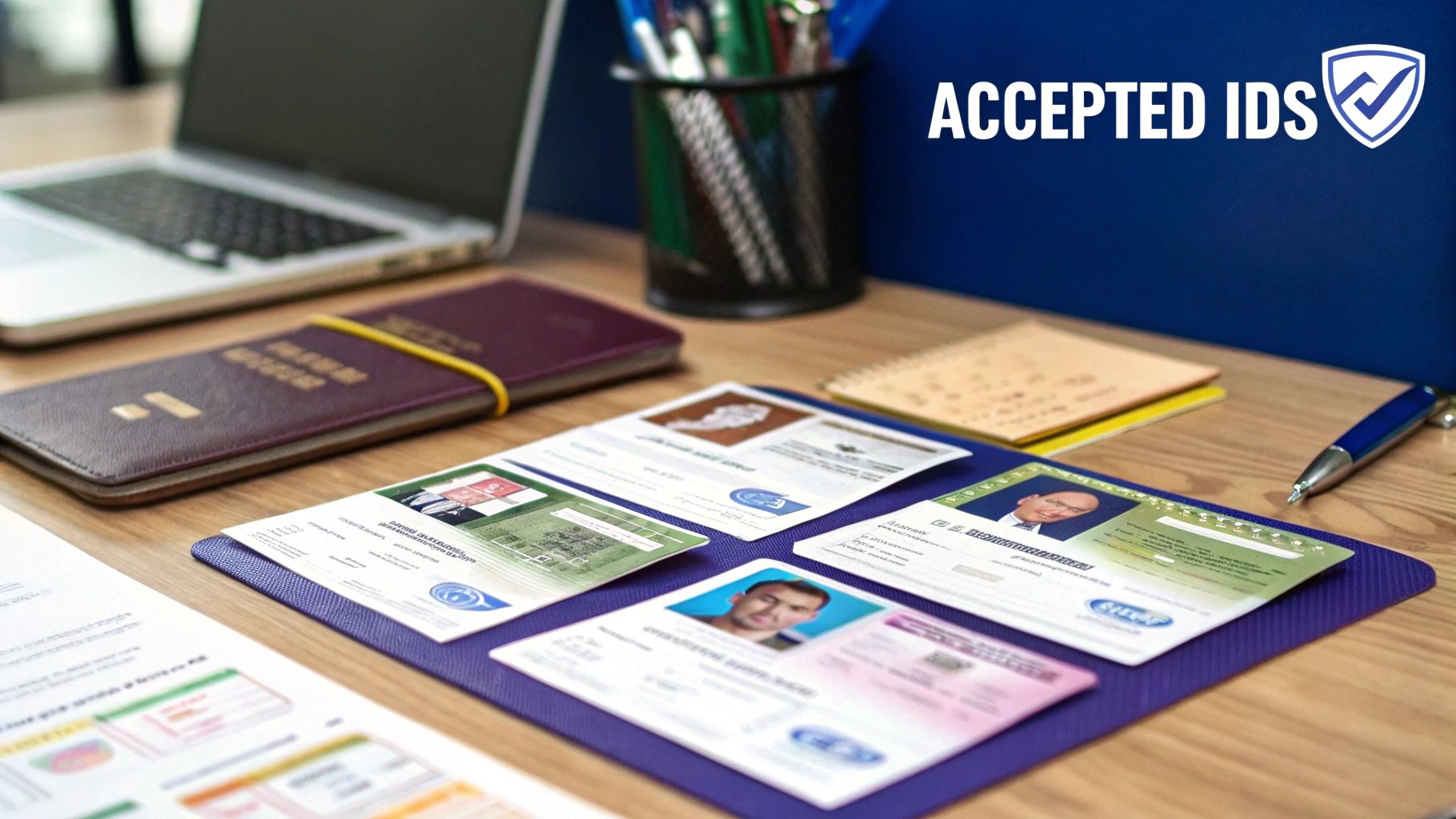
A notarization without proper ID is like building a house on sand; it has no foundation and can't stand up to scrutiny. The entire legal power of a notarized signature hinges on the notary's verification that the right person signed the document, and did so willingly. It’s our first and best defense against forgery and coercion.
The Bedrock of Trust and Legal Authority
Let’s put it in real-world terms. Imagine someone forging your signature to try and sell your home. A notary’s insistence on seeing a valid ID stops that illegal act dead in its tracks. This simple but strict process protects everyone, from an individual signing a personal power of attorney to a corporation closing a massive business deal.
This verification is what gives the notary's stamp its authority. It turns a regular signature into a powerful, legally recognized act and gives everyone confidence that the document is authentic. If you want to dive deeper into why this matters, take a look at our guide on the power of notarization.
By confirming a signer's identity, a notary acts as an impartial witness. They add a crucial layer of fraud prevention that underpins both personal and business agreements. This validation isn't just part of the process—it is the process.
Evolving with the Times
The need for secure, reliable identification has even shaped how notary services are delivered today. The emergence of Remote Online Notarization (RON) has made getting documents notarized incredibly convenient, but it hasn't sacrificed security. In fact, as of 2025, a solid 40 U.S. states have passed laws to permanently allow online notarizations.
This isn't just a niche service; it saw a staggering 547% jump in use during the pandemic, proving that technology can absolutely meet long-standing legal standards. Once you grasp why identification is so central to what we do, the specific ID rules make a lot more sense.
The Official Checklist for Accepted Notary IDs
When you meet with a notary, the first thing they'll ask for is your ID. This isn't just a casual glance; it's a methodical process to verify you are exactly who you say you are. While the specific rules can differ a little from state to state, there's a core set of government-issued IDs that are almost universally accepted.
Think of your ID as the key that unlocks the notarization. It needs to contain specific, verifiable features that a notary can rely on to do their job properly. The most trusted forms are always those issued by a government agency because they're designed to be secure and difficult to fake.
This visual breaks down the most common documents that meet the standard notary identification requirements.
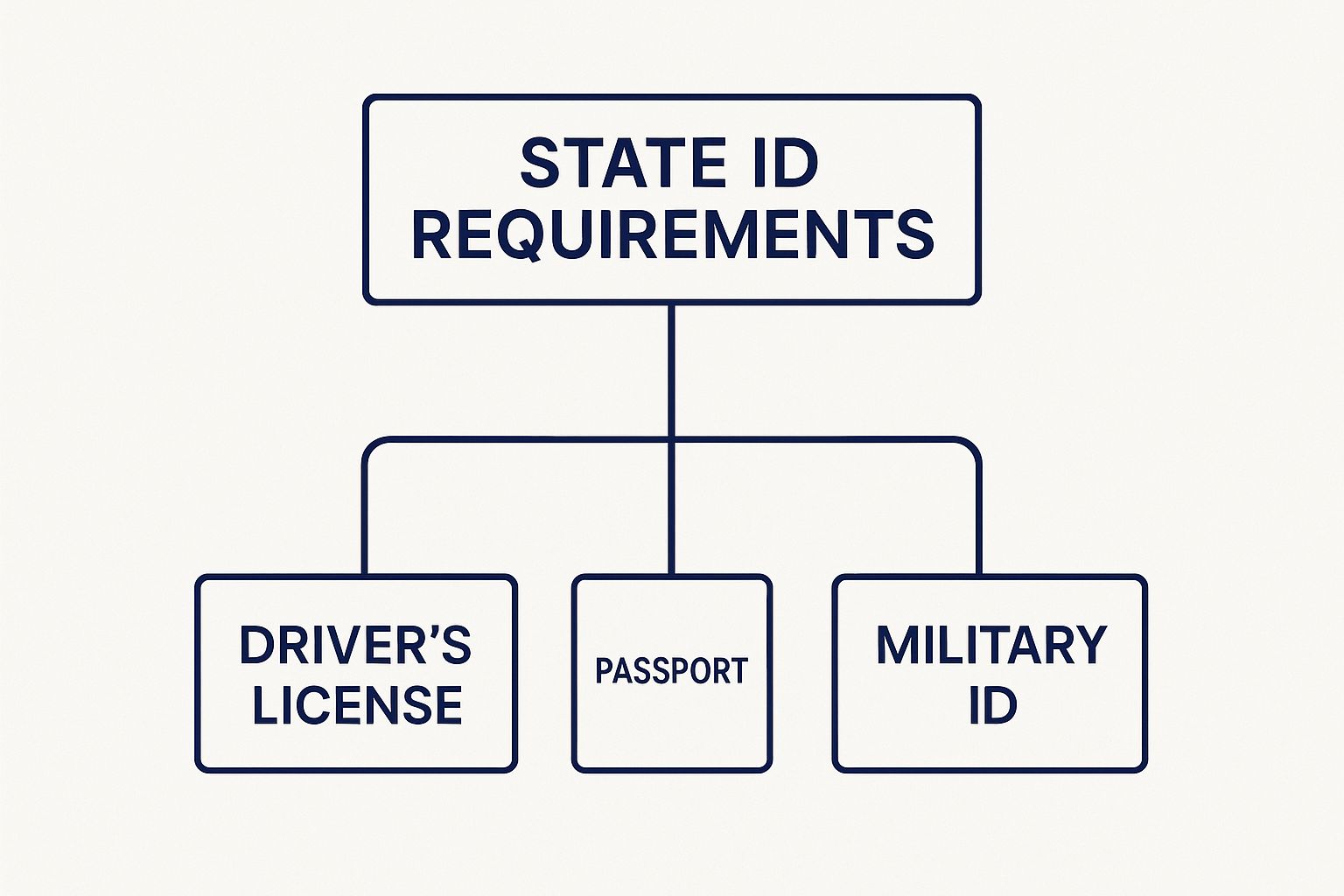
As you can see, a driver's license, a state-issued ID card, a U.S. passport, or a military ID are the gold standard. They're issued by state or federal authorities and are the most reliable way to prove your identity.
To help you prepare, here's a quick-reference table outlining the most common forms of identification notaries accept.
Commonly Accepted Forms of Identification for Notarization
ID Type | Issuing Authority | Key Requirements |
|---|---|---|
Driver's License | State motor vehicle agency | Must be current (not expired) and contain a photo, signature, and physical description. |
State-Issued ID Card | State motor vehicle agency | Similar to a driver's license, it serves as a primary photo ID for non-drivers. |
U.S. Passport Book/Card | U.S. Department of State | A federally issued document that is widely accepted. It includes a photo and signature. |
U.S. Military ID | U.S. Department of Defense | Includes active-duty, retired, and dependent ID cards. Must be current and contain all key elements. |
Foreign Passport | Foreign Government | Must be stamped by U.S. Citizenship and Immigration Services (USCIS). Not all notaries accept this. |
This table covers the most frequent options, but always double-check your state's specific laws, as some have unique rules or accept additional forms of ID.
The Four Pillars of a Valid ID
No matter what type of ID you bring, it absolutely must have four key elements. If even one is missing or incorrect, the notary cannot legally proceed with the notarization. It's a dealbreaker.
Here’s the essential checklist your ID must pass:
It Must Be Current: An expired ID won't work. The expiration date needs to be valid, though a handful of states make exceptions for IDs that have expired very recently.
It Must Contain a Photograph: The photo has to be a clear, recognizable image of you. This is the notary's first line of visual confirmation.
It Must Bear Your Signature: The notary will compare the signature on your ID to the one you sign on the document, so they need to match.
It Must Include a Physical Description: Details like your height, weight, and eye color add another layer of verification to confirm your identity.
An ID that checks all these boxes provides what notaries refer to as "satisfactory evidence of identity." This is the legal standard they must meet, creating a clear record that they performed their due diligence.
Ultimately, these strict requirements are in place to protect everyone involved and prevent fraud. By checking your ID against this list before you go, you can ensure your notarization is quick, smooth, and successful.
How State Laws Dictate What ID You Can Use
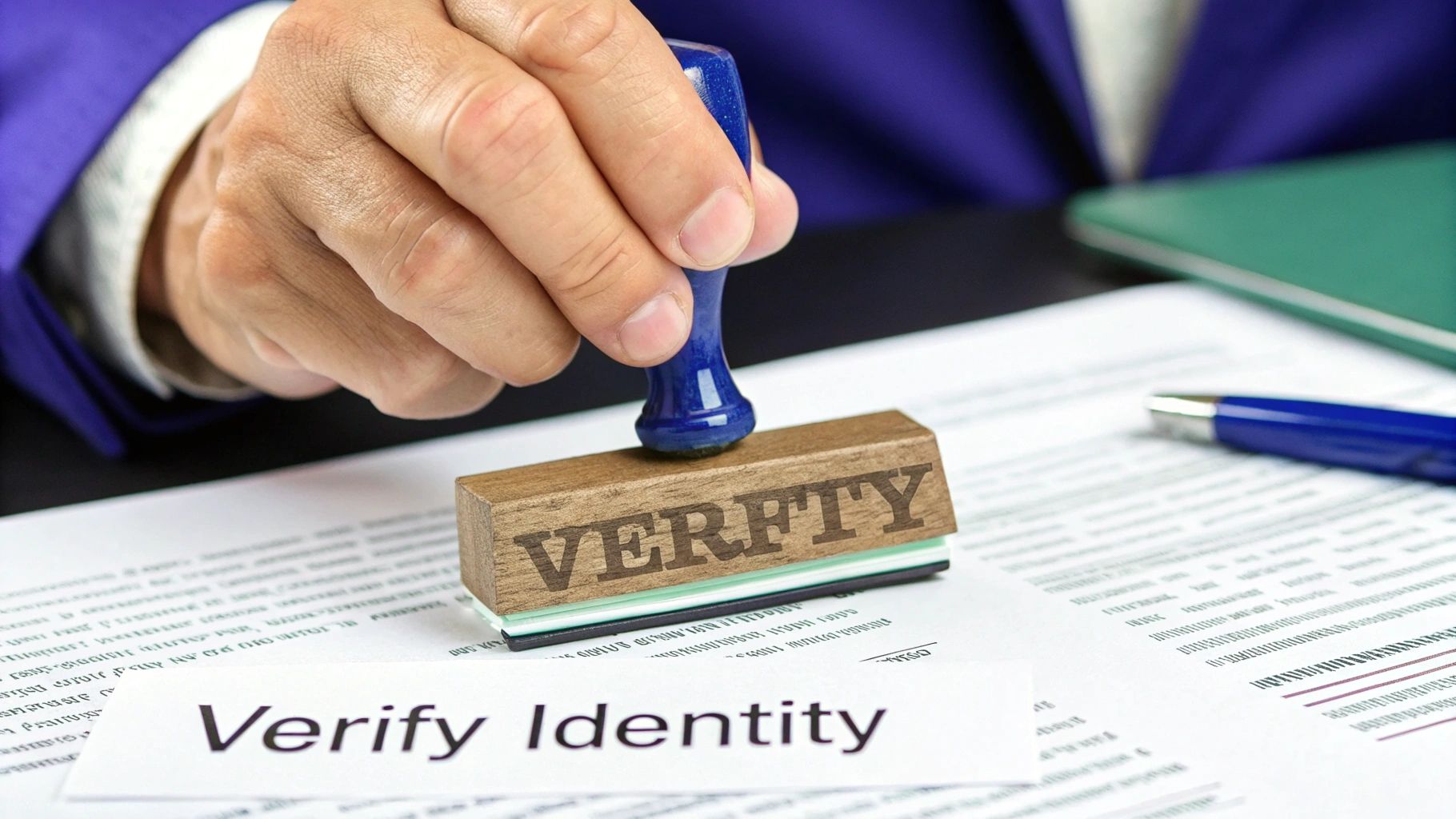
While the fundamental goal of identifying a signer is the same everywhere, the actual rules are far from universal. It's helpful to think of it like this: federal guidelines create a basic framework, but state laws are the specific, on-the-ground regulations that notaries must follow to the letter.
Each state's Secretary of State is the ultimate authority, setting the final, legally-binding rules for their commissioned notaries. This is exactly why an ID that works perfectly for a notarization in Nevada might get flat-out rejected in California. These state-by-state differences can be incredibly detailed, covering everything from the exact types of ID allowed to how a notary should handle a minor name variation. Getting this wrong can mean a voided notarization and frustrating delays for everyone involved.
A Tale of Two States
Let's look at a couple of real-world examples to see just how much these rules can diverge. A common practice in many states is allowing a notary who personally knows the signer to proceed without a formal ID check. But in California? That's strictly forbidden. Every single signer must present a state-approved ID, no exceptions.
Another tricky area is expired identification. While many states have a zero-tolerance policy for expired IDs, California carves out an exception. A notary there can accept an ID that has expired, but only if it was issued within the last five years.
This drives home the most important takeaway: Never assume the rules are the same from one state to the next. You must always confirm the specific notary identification requirements for the state where the notarization is happening.
Finding Your State's Rules
So, how do you make sure you're following the right guidelines? Your best bet is to go straight to the source. The official Notary Public Handbook or the state statutes, typically found on the Secretary of State’s website, are your definitive guides.
A simple search for "[Your State] notary identification rules" will usually get you there. Taking a few moments to double-check this information is the single best thing you can do to ensure your notarization is smooth, successful, and legally sound.
Verifying Your Identity for Online Notarization
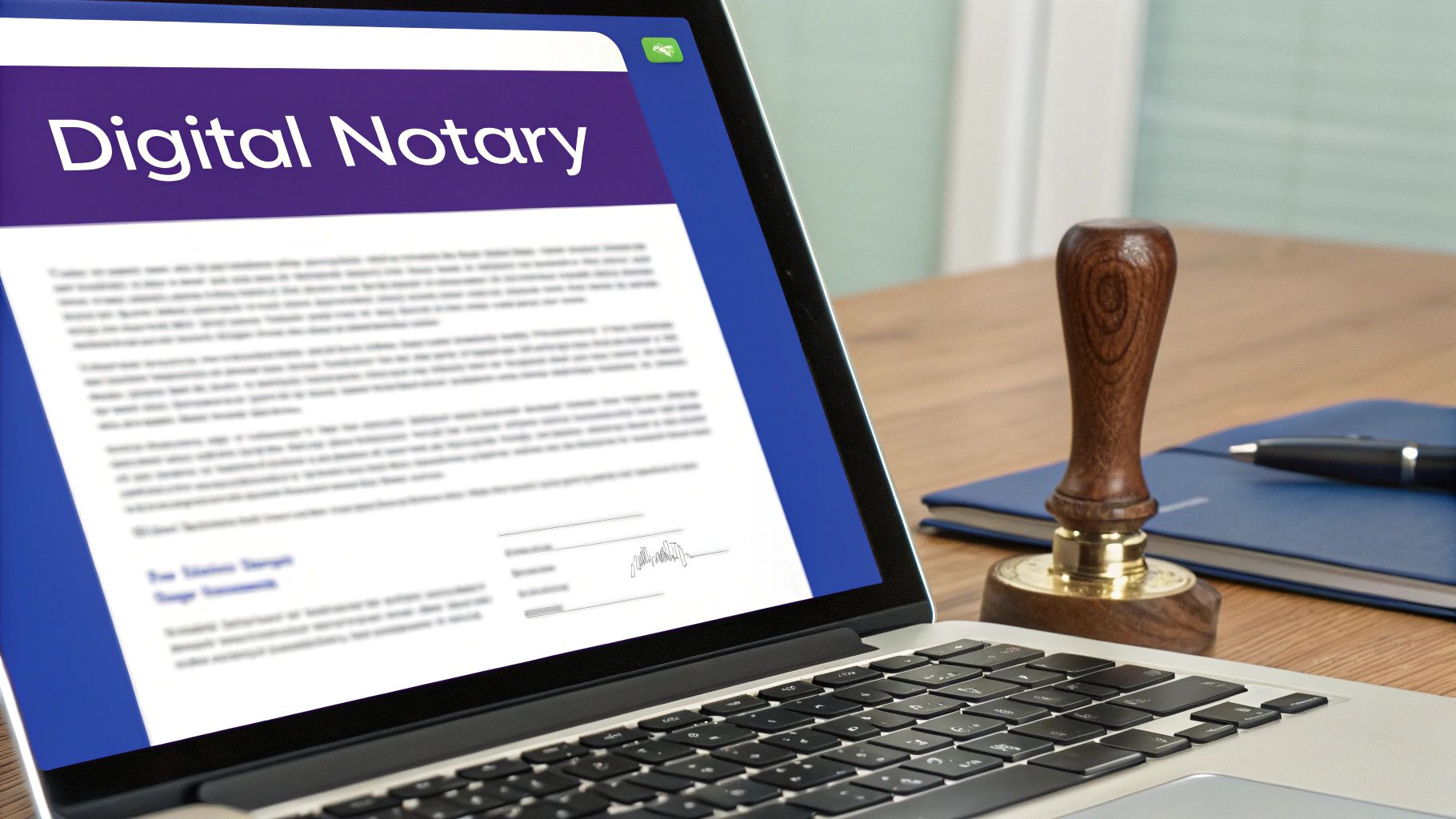
So, how do you prove you are who you say you are when you can’t physically hand your ID to a notary? It’s a great question. Remote Online Notarization (RON) platforms tackle this challenge with a surprisingly thorough security process that's often even more secure than a traditional, in-person meeting.
Instead of just a quick glance at an ID, RON relies on a smart, two-part system to confirm your identity. This approach is built to be tough on fraud but easy for you, protecting the integrity of your documents no matter where you are.
Step 1: Credential Analysis
First up is Credential Analysis. Think of this as a high-tech inspection of your government-issued photo ID. You'll be prompted to take clear pictures of the front and back of your ID using your computer's webcam or smartphone camera.
That's when the magic happens. Specialized software immediately scans those images, looking for all the tiny security features baked into modern IDs—things like holograms, microprinting, and other anti-counterfeit measures. It's a far more detailed analysis than the human eye can manage, confirming your ID is the real deal and hasn't been altered.
Step 2: Knowledge-Based Authentication (KBA)
Once the system validates your ID, you move to the second layer: Knowledge-Based Authentication (KBA). This is basically a pop quiz where all the answers come from your own life.
The platform generates a handful of multiple-choice questions by pulling from public and private records connected to your personal history. You might be asked about a previous address, a car you once owned, or an old phone number. You’ll have to correctly answer about 80% of these questions within a tight timeframe, usually just two minutes.
This one-two punch of verifying something you have (your ID) and something you know (your personal history) creates a powerful security checkpoint. It confirms that the person holding the ID is the person who rightfully owns it.
This robust verification is just the beginning of the online notarization journey. For a complete walkthrough of the entire process, be sure to check out our detailed guide on how to get documents notarized online.
Handling Foreign IDs and International Notarization
We live in a connected world, which means the person signing your document might not have a U.S. driver's license. This brings up a big question I hear all the time: can a foreign ID be used for a U.S. notarization? The short answer is yes, but it’s not always straightforward.
Whether a notary can accept a foreign ID really depends on two things: the type of identification and the laws of the state where the notarization is taking place. A foreign passport, for example, is almost universally accepted. As long as it's current and has the required photo and signature, a notary can usually verify it with confidence.
Modernizing Verification for a Global Audience
The real friction with international signers tends to pop up during online notarizations. Old-school identity checks, like Knowledge-Based Authentication (KBA), are a dead end for most people living abroad because they rely on U.S. credit and public records.
To get around this, modern Remote Online Notarization (RON) platforms are now using advanced biometric analysis. This tech is a game-changer. It compares a live scan of the signer's face to the photo on their ID, confirming their identity without needing any U.S.-based data.
This is a huge leap forward in making notarization accessible to everyone. Passports from virtually any country are now accepted, alongside other valid photo IDs like driver's licenses from the U.S., Canada, and Mexico. This biometric verification is pushing aside outdated methods like KBA, which often demanded a U.S. Social Security number or credit history. You can find more details about this process in guides on international notarization on notarypublic24.com.
This shift ensures the core notary identification requirements can be securely met by anyone, no matter where they are. It’s just one of the many reasons why online notarization is the future of document verification. By embracing these tools, we're making it easier for expats, global companies, and anyone outside the U.S. to get their important documents finalized.
What to Do When You Have No Valid ID
It’s a stomach-dropping moment. You’ve got an important document that needs to be notarized, but you realize your ID is expired, lost, or just plain missing. Before you start panicking, take a breath. There's a well-established, official workaround for this exact situation.
The solution involves bringing in another person to vouch for you, but this isn't a casual favor. It's a formal process with strict rules, known as using a credible witness.
Who Can Be a Credible Witness?
Think of a credible witness as your personal identity guarantor. They are swearing under oath, directly to the notary, that you are who you say you are. Because this is a legal substitute for a standard photo ID, the requirements for who can serve as a witness are serious and designed to prevent fraud.
Not just anyone can step in and fill this role. A credible witness must:
Personally know you. This isn't a job for a stranger or someone you just met. The witness needs to genuinely know you.
Be a neutral party. They cannot have any financial stake or personal interest in the document being signed. This is critical for ensuring their testimony is unbiased.
Have their own valid ID. The witness must present their own unexpired, government-issued photo ID to the notary for verification.
Essentially, the notary identifies the witness, and the witness identifies you. It’s a legal chain of trust that allows the notarization to proceed.
A credible witness isn't just speaking on your behalf; they are making a formal, sworn statement. They'll be required to sign the notary's journal and may even need to sign a separate affidavit confirming their identity, their relationship with you, and their impartiality regarding the document.
This process turns what feels like a major roadblock into a clear path forward. Some states even have variations. California, for instance, allows for two credible witnesses to vouch for you if the notary doesn't personally know either one of them. It's a secure backup plan that keeps things moving when your ID can't.
Got Questions About Your ID for a Notary?
Even with a clear list of what works, real-life situations can throw a wrench in the works. Let's tackle some of the most common questions that pop up right before a document gets stamped.
Can I Just Use a Picture of My ID on My Phone?
Simply put, no. For any face-to-face notarization, you absolutely must have your original, physical ID card in your hand. A photocopy or a digital image on your phone just won't cut it.
The whole reason for this is security. A notary is trained to physically inspect the ID, feeling for texture, checking holograms, and looking for any subtle clues that it might be a fake. You just can't do that with a picture.
With Remote Online Notarization, the process is different. The platform will walk you through capturing live images of your ID, which is then verified by sophisticated software designed to spot fraud.
What if My Name on the Document Is Slightly Different From My ID?
Your name on the document needs to be a very close match to your ID. A small difference, like using a middle initial on one and the full middle name on the other (“Jane S. Doe” vs. “Jane Sarah Doe”), is usually fine.
But a major difference will be a problem. Think maiden name versus married name—that's a common reason for a notary to refuse to proceed.
The best way to sidestep this headache is to sort it out before your appointment. Either update your ID to reflect your current name or have the document redrawn to match your ID exactly. This simple step can save you a lot of time and trouble.
My ID Is Expired. Can I Still Use It?
This is one of the biggest "it depends" in the notary world. The answer is almost always no, as most states demand a current, valid ID.
However, a handful of states have carved out specific exceptions. California, for example, allows an ID that has expired within the last five years, as long as it meets every other requirement. When in doubt, assume your ID must be current, but it's worth a quick search of your specific state's laws if you find yourself in this situation.
Need to get a document notarized in Las Vegas without the hassle? Signature on Demand offers mobile and online notary services 24/7 to meet your needs. We come to you or connect with you online, ensuring a secure and professional experience every time. Book your appointment with Signature on Demand today.


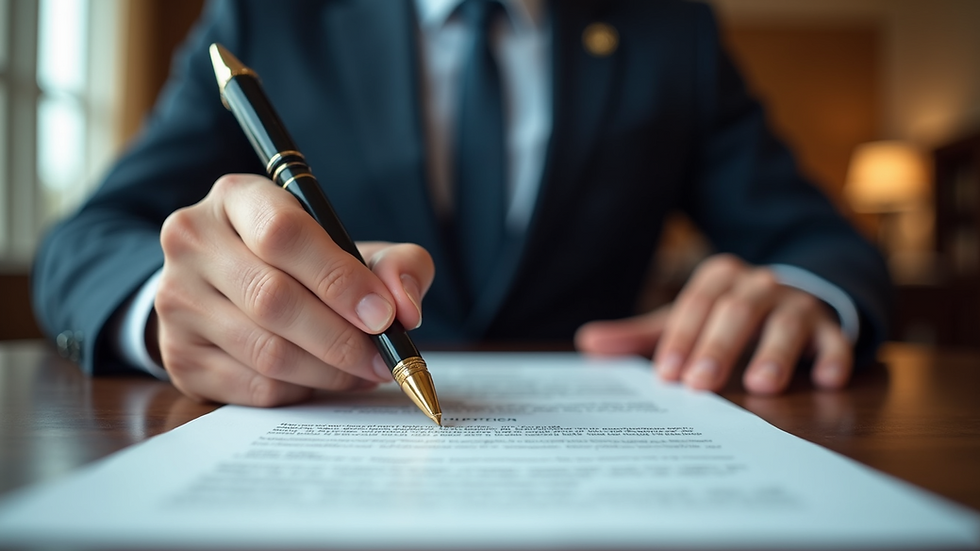

Comments